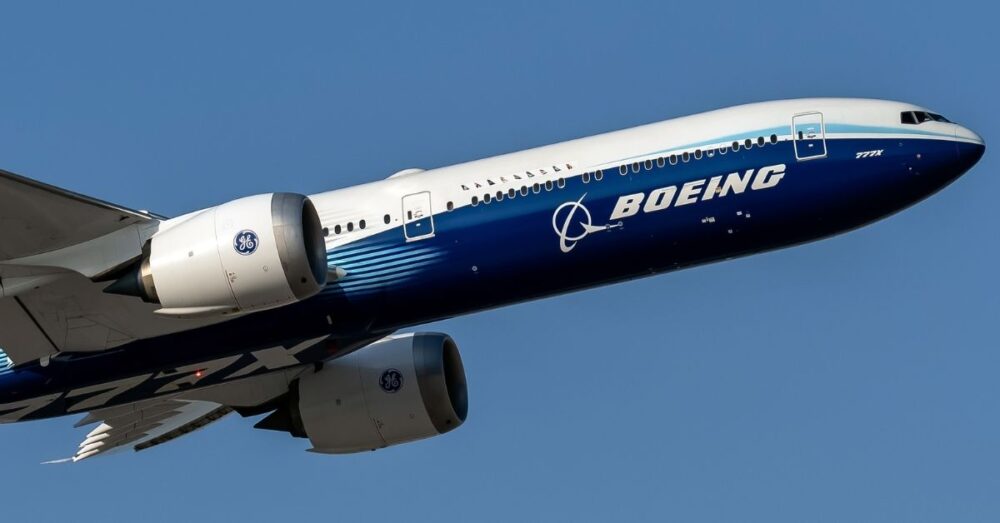(Texas Scorecard) – Boeing is being sued in a Texas court for assuring pilots that its new 737 MAX aircraft did not require specialized training. After the aircraft was grounded by the Federal Aviation Administration, the Dallas-based Southwest Airlines Pilots Association is seeking to recover damages.
The aerospace company has received harsh criticism in recent years regarding its DEI practices.
Background
Boeing introduced the 737 MAX model of jetliners in 2011, marketing the new plane as being more fuel efficient than previous 737 models but similar enough that pilots could fly it without additional training. Delivery of the new planes began in 2017.
However, two MAX planes crashed within months of each other—one in October 2018 in Indonesia and one in March 2019 in Ethiopia—killing all 346 people on the planes.
Both crashes were reportedly caused by a new flight-stabilizing feature that accounts for the MAX’s larger engine, which sits further forward on the wing than previous models. Pilots had not been trained on this feature.
Just before the two crashes, the Southwest Airlines Pilots Association (SWAPA)—which represents roughly 11,000 Southwest pilots—had agreed to fly the MAX aircraft Southwest had recently purchased. The decision was reportedly based upon Boeing’s assertions that no further training was required.
Following the second crash, the FAA grounded the MAX. Southwest was forced to cancel hundreds of flights, and SWAPA pilots were reportedly left without planes to fly.
The Lawsuit
This prompted SWAPA to sue Boeing, asserting that “Boeing interfered with SWAPA’s business relationship with Southwest and fraudulently induced the pilots to agree to fly the MAX.” The case was filed in the 160th Judicial District Court of Dallas County.
According to court filings, SWAPA alleges that “Boeing inserted itself into SWAPA’s settlement negotiations with Southwest and falsely assured SWAPA that the MAX was ‘essentially a more fuel efficient’ version of the 737 variant they were then flying and that pilots could fly the MAX without additional training.”
SWAPA reportedly relied on Boeing’s misrepresentation when dismissing a 2016 lawsuit against Southwest and ultimately accepting a new collective bargaining agreement (CBA) which explicitly required pilots to fly the MAX.
SWAPA is seeking damages both on its own behalf—for legal fees and loss of membership dues—and for lost wages on behalf of its individual members.
Boeing contends that SWAPA cannot assert claims on its members’ behalf, and that the federal Railway Labor Act (RLA) pre-empts any state law claims because they require interpreting the CBA between SWAPA and Southwest.
Boeing had the case removed to federal court to settle the RLA claims, though the court sided with SWAPA and remanded the case to state court.
The trial court sided with Boeing, and SWAPA appealed.
The court of appeals ruled that the RLA does not pre-empt SWAPA’s claims, but that SWAPA can only assert its own claims, not those of its pilots. Boeing appealed this decision to the Supreme Court of Texas.
In a decision written by Justice Jeffrey Boyd in March, Texas’ Supreme Court agreed with the court of appeals, sending the case back to the trial court for further proceedings on the claims asserted by SWAPA on its own behalf.
That is the current status of the case.
Context
Boeing has been involved in multiple controversies in recent years, largely involving the company’s Diversity, Equity, and Inclusion (DEI) practices.
Last year, Attorney General Ken Paxton opened an investigation into Spirit AeroSystems Holdings Inc., a Boeing parts supplier, following a high-profile incident in which a Boeing 737 Max 9 lost a door-plug panel mid-flight.
Paxton’s office alleged “recurring issues” with parts supplied by Spirit and asked the company to disclose its employee demographics prior to the enactment of its DEI policy to evaluate if diversity hires are a correlating factor with quality performance.
According to a lawsuit filed against Spirit in 2023, Boeing revealed to the press that it discovered defects in the tail fin fittings on certain 737 MAX aircraft. As a result, Spirit’s stock price dropped over 20 percent. Spirit confirmed the defect afterward.
Paxton’s investigation was ultimately blocked by a federal judge, preventing him from forcing the company to release the relevant internal documents.
If you or anyone you know has information regarding court cases, please contact our tip line: [email protected].


